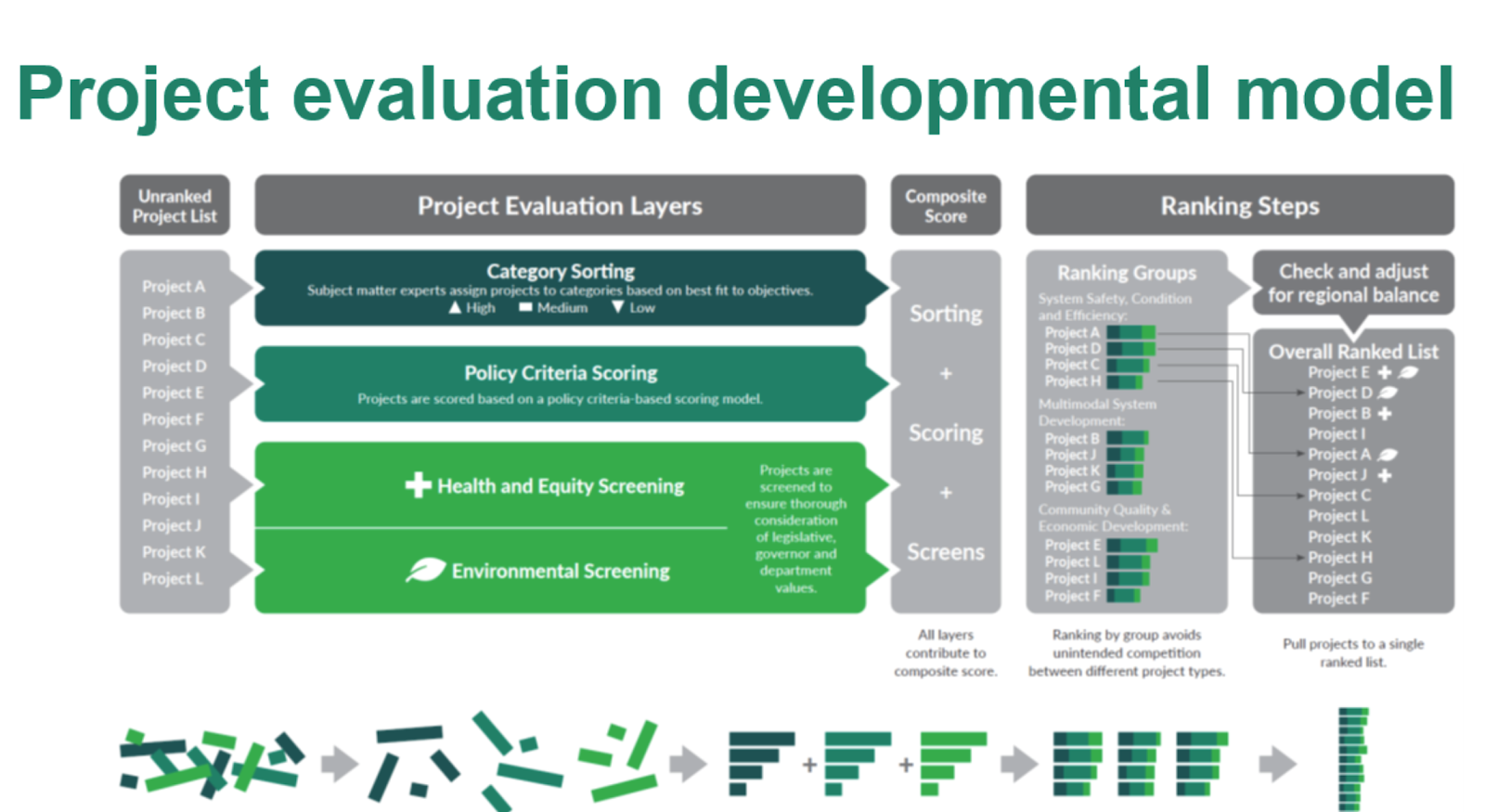
A new evaluation tool could help the legislature make transparent spending decisions while developing the next transportation package.
Washington is a step closer to ensuring transportation spending is accountable, predictable and helps us achieve goals that benefit people and the environment. In response to legislative directive, WSDOT has completed an initial draft of a project evaluation model that could guide the legislature in aligning investments with policy goals. The model and several other recommendations were released in a new feasibility report last month.
Performance-Based Evaluation
The model demonstrates how transportation projects can be scored and ranked based on adopted goals, and then screened for beneficial outcomes such as health, equity, and the environment. Based on this performance-based evaluation, legislators could then make more informed decisions about transportation spending.
As stated in the report: “The purpose of performance-based project evaluation is to identify the investments and projects that most effectively and efficiently support identified goals. Using performance-based project evaluation will help maximize a return on the state’s transportation investments while promoting the benefits represented in the graphic to the right.”

Improving our Policy Goals
While investment based on policy goals is a tremendous step, last year we argued that the state’s current transportation policy goals should be also updated to better reflect transportation’s role in environmental justice, the climate crisis, and access to opportunity.
In response, legislators requested that Advisory Panel members working on a Joint Transportation Committee Needs Assessment consider “whether a revision to the statewide transportation policy goals…is warranted.” Recommendations in the report, published last month, affirmed that transportation investments should advance the transportation system policy goals, and half of the advisory group members saw value in updating the goals themselves. Ideas for improving the goals included:
- Greater emphasis is needed on equity.
- To promote and expand historically underfunded transportation modes necessary to solve the current and future mobility crises.
- To better tie transportation to land use and GMA goals.
- To guide investment decisions with a greater focus on environment and climate, health and climate, equity and environmental justice, and accessibility.
Billions at Stake
The legislature will discuss several transportation package proposals during the 2021 session, in addition to passing the transportation budget. With potentially tens of billions in spending on the table, it is crucial that we understand how these funds will help with economic recovery, and in building a healthier, more sustainable future.
Transportation committee members will receive an update on both reports, then it’s up to legislators to decide whether to update the policy goals and to direct WSDOT to continue to move forward on performance-based evaluation — the model needs to be tested on real projects and further refined to develop metrics for each goal — and to provide additional funding to do so. TCC is excited to advocate in support of this work.
Our Work Continues
Much of this progress is a direct result of the Climate Alliance for Jobs and Clean Energy’s Transportation for All bill during the 2020 legislative session. Though the bill did not pass, it generated robust conversation and resulted in budget provisos directing WSDOT to conduct the feasibility report and the JTC Advisory Panel to re-examine the state’s transportation policy goals. But we’ve got plenty more work to do. TCC organizes the Climate Alliance’s Clean and Just Transportation table – see how we’re carrying this work forward in the 2021 session.




